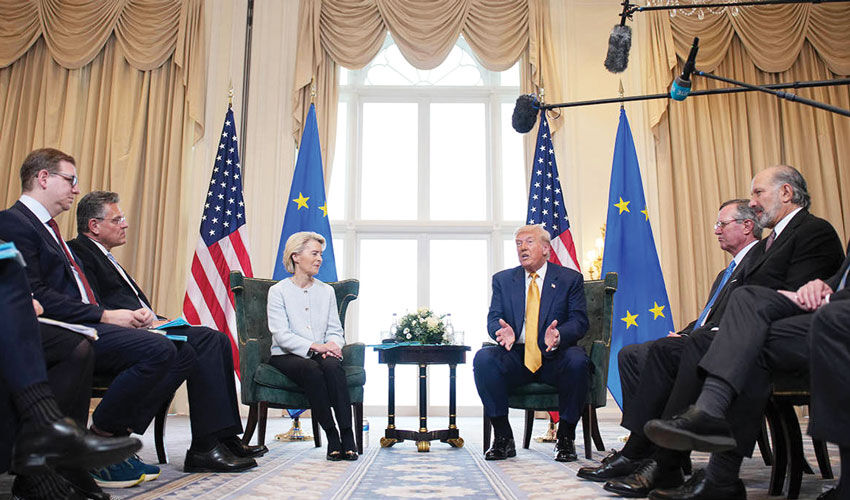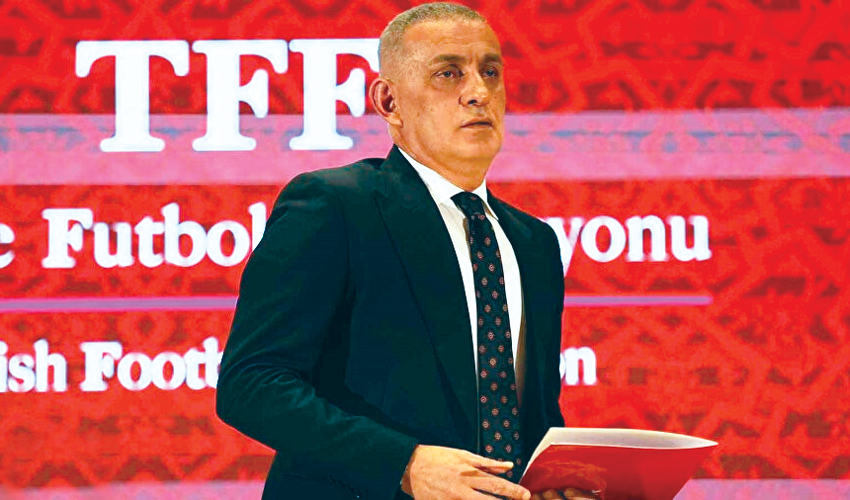
Such blatant asymmetry is far from what Europe demanded, namely almost zero duties on both sides. The situation is aggravated by the fact that the agreement envisages forced purchases of $750 billion worth of U.S. energy, $600 billion worth of European investments in the U.S., and additional orders of U.S.-made military equipment.
Yes, the EU might argue that a 15% duty is far less than the 30% duty that Trump initially wanted to impose. Also, the energy and investment commitments are only vague promises, as neither the European Commission nor EU countries can tell European companies what to buy and where to invest. Europeans can also take some comfort from the fact that this is a draft agreement that has not yet been signed. Many details have yet to be negotiated and will be of little interest to Trump.
However, from his perspective, he has gotten an incredible result. There is simply no way Europe can claim to have “won.” At best, it has succeeded in limiting the damage. Von der Leyen arrived in Scotland weak and nervous, and left even more weakened, albeit with some relief.
The EU could have acted differently, for it is not an economic or political dwarf. It is one of the world’s leading trading powers, and America’s main trading partner and leading supplier. About 20 percent of American imports come from Europe, which is roughly the same share of imports from China. Moreover, these trade flows affect all areas of economic activity in the United States. Contrary to the scornfully derisive attitude of Trump supporters, imports from Europe are not limited to luxury goods and wine. For example, U.S. industry is highly dependent on European industry, not the other way around.
Europe had many cards in this game, and could even strengthen its hand by coordinating positions with two other G7 countries that have been threatened by the US: Japan and Canada. The EU’s options did not end there. Another formidable card was the Anti-Compulsion Instrument (ACI), designed for situations where “a third country seeks to pressure the EU or an EU country to take specific actions affecting trade and investment.” And that is exactly what happened.
But from the outset, von der Leyen chose to ignore the advice of the Commission’s experts and refused to use ACI even as a deterrent. Had she used it, the U.S. would not have taken the threat lightly, as it is already engaged in a costly trade war with China. Unlike Europe, China has responded to every escalation from the U.S. with a retaliatory escalation, creating a situation that even the Treasury Secretary in Trump’s cabinet calls “unsustainable.” Under pressure from the markets, Trump has already retreated from his previous positions, and von der Leyen is well aware of this.
Europe has not even tried to achieve a balance of power with Trump. Had it shown a willingness to risk further escalation when China did the same, Trump would have been in a much weaker position. But Europe has chosen to behave not like China but like Japan, another major trading partner whose security depends on America.
The final deal is a disaster. It confirms that the EU is essentially driven by the fear of losing U.S. protection in the current dangerous geopolitical environment. Continued transatlantic cooperation in any form, however humiliating, is preferable to dubious independence.
From this point of view, it would be extremely unfair to explain the final result by von der Leyen’s decisions. She herself is constrained by two “red lines”: to protect German interests at all costs and to avoid a break with the United States. However, once you are willing to pursue something “at any cost,” it turns out that there is no degree of humiliation that you will not accept.
Most other European leaders seem overwhelmed by the current situation. The complexities of the modern world seem overwhelming to them, and so they submit to whatever is demanded of them. They have forgotten Benjamin Franklin’s warning that “a people willing to sacrifice a little liberty for a little security deserve neither, and will end up losing both.”
Zaki Laidi,
former special adviser to the EU High Representative for Foreign Affairs and Security Policy, now a professor at the Institute for Security Policy.
and security policy, is now a professor at Sciences Po’sInstitute for Policy Studies .
© Project Syndicate, 2025.
www.project-syndicate.org













